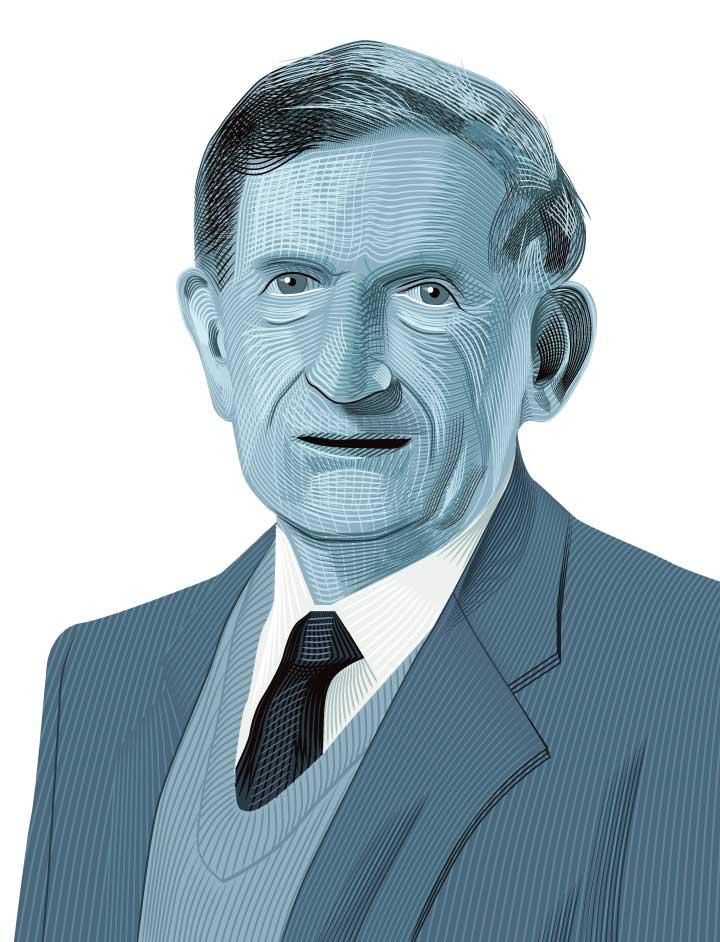
In November of 1950, David Bohm, an assistant professor of physics, was indicted on a charge of contempt of Congress. He had been asked to testify before the House Un-American Activities Committee (HUAC) concerning his dissertation adviser, J. Robert Oppenheimer. Bohm refused to testify on Fifth Amendment grounds and the University suspended him, though he was later acquitted. He left Princeton for good in 1951.
Bohm grew up in Pennsylvania’s coal-mining country. As a graduate student at the University of California, Berkeley, he helped to organize a union at the Berkeley Radiation Laboratory. He joined the Communist Party in 1942, but quit a year later because the meetings were petty and exhausting. “I began to feel that they did nothing but talk about things of no significance, about trying to organize protests of affairs on the campus, and so on,” he said later. “The meetings were interminable, discussing all these interminable attempts to stir up things on the campus, which really didn’t amount to much.”
Despite support from colleagues and students in the physics department, Dodds had already decided to let him go.
In 1947, Princeton recruited Bohm for a position in theoretical physics. Princeton professor Henry DeWolf Smyth 1918 *1921 wrote to President Harold Dodds *1914, “Bohm has been recommended to us as one of the ablest young theoretical physicists that Oppenheimer has turned out.” But on April 21, 1949, a subpoena to appear before HUAC arrived at Bohm’s office at the Palmer Physical Laboratory. Things rapidly spiraled downward. In December 1950, a month after receiving a recommendation from the physics department to reappoint Bohm, the administration suspended him and forbade him to set foot on campus. Despite support from colleagues and students in the physics department, Dodds had already decided to let him go. In 1951, Dodds wrote to a faculty member: “I feel that the University must recognize that Professor Bohm has not indicated that he possesses those qualities of personality and judgment which should be expected of a member of its faculty.”
Bohm took faculty positions in Brazil, Israel, and, finally, Birkbeck College, University of London, where he spent the rest of his career. Increasingly, he sought to rethink the foundations of quantum theory. In the decades following World War II, as the historian Russell Olwell argues, American physicists, as the beneficiaries of substantial military investments, worked largely on pragmatic questions rather than interrogating the theoretical bases of their fields. Bohm was a rare exception, and he corresponded for decades with Albert Einstein, another skeptic of quantum orthodoxies. Nonetheless, the theoretical-physics community gave Bohm’s work little engagement, a reflection of his isolation, unusual interests, and political unseemliness.
In recent decades, Bohm’s work has had a “resurgence,” Olwell writes: “Bohm’s fundamental questions came increasingly to be seen as relevant to physics and to the philosophy of science in general. ... Ironically, many younger physicists and philosophers of science who cite or argue about Bohm’s work are unaware of his political troubles and his intellectual marginalization; he is seen simply as having been ahead of his time.”
This article drew on an interview from the Martin J. Sherwin Collection and the Voices of the Manhattan Project oral-history project. Read and listen to the full interview at manhattanprojectvoices.org.
